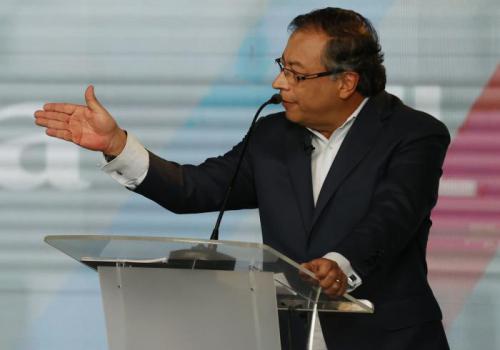Colombia's congress has approved a tax reform bill that raises an additional 20tn pesos (US$4bn) annually, largely through higher contributions from fossil fuel producers. President Gustavo Petro, who became the country's first leftist leader when he took office on August 7, will use the reform to finance an ambitious social spending program aimed at combating poverty and inequality. Critics have warned the initiative will discourage investment, particularly in the oil and coal sectors, which together accounted for almost half of Colombia's US$41.2bn export revenue in 2021. "This is the most progressive reform in history. There are obviously some sectors that are going to pay more taxes, but they all have high income," finance minister José Antonio Ocampo told journalists late Thursday. The reform, approved by the senate on Wednesday and the lower house on Thursday, fell short of the 21.5tn-peso revenue target established after congress held its first session to debate the bill last month. This followed the scrapping of a proposal to tax monthly pensions above 10mn pesos and a reduction of some taxes for oil and coal. Officials originally said they hoped to raise 25tn pesos a year. Despite warnings about the impact on the fossil fuels sector, lawmakers approved a surcharge on income tax for oil and coal companies when international prices of raw materials reach certain levels.
Oil producers will be taxed an additional 5% when international crude prices are between US$67.3 and US$75/b. The figure rises to 10% when prices range between US$75 and US$82.2/b, and 15% when they are higher. Other changes include a heavier tax burden on individuals earning more than 10mn pesos a month, a permanent personal wealth tax as well as new levies on dividends and capital gains. In addition to raising the tax burden on fossil fuel companies, Petro has pledged to stop issuing new oil and gas exploration licenses and accelerate investments in renewable energy. According to the Colombian Petroleum Association (ACP), the measures could leave the country needing to import gas by 2026 and oil by 2028.
